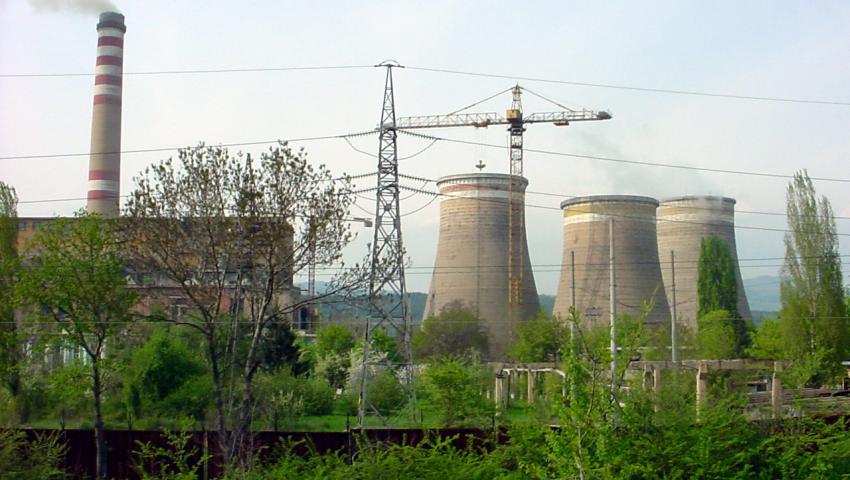2,736,895 are the electronic certificates for origin of the electricity electricity issued by the EWRC

The electronic certificates of origin of the electricity produced by combined heat and power plants in 2020 (issued and transferred) are a total of 2,736,895. This number corresponds to the electricity produced by high-efficiency cogeneration (2736895 MWh) or with 25305 pcs. less than in 2019 (the difference is less than 1%). This is clear from the annual activity report published by the EWRC.
As is known, according to the Energy Act, the commission issues, transfers and revokes monthly certificates of electricity producers for the origin of the goods electricity produced from high-efficiency cogeneration (HPP) of electricity and heat.
Some of these issued certificates, amounting to 43,749 units, did not receive compensation from the Electricity System Security Fund (EUSF) due to the fact that the Fund did not compensate 28,789 units. certificates, which are for electricity for sales on direct power lines to customers and / or traders of electricity (under Art. 119, para. 2 of the Energy Act), shall be reported by the regulator.
As is known, the certificate of origin is an electronic document issued at the request of the manufacturer, for a minimum net quantity (1 MWh) of electricity, measured at the output of the plant and submitted to the relevant electricity network, subject to accuracy, reliability and impossibility of forgery.
For each unit of electricity produced from high-efficiency cogeneration (HPV) of electricity and heat, only one certificate of origin may be issued, which is valid for 12 months from the production of the respective unit of energy and is used by the producer to prove to the buyer of the energy that it is produced by high-efficiency cogeneration.
The regulator also reports that in accordance with the energy law, 14,960 units have not received compensation. certificates (14,960 MWh), which have not been transferred to the EUSF due to the fact that the electricity has been used by the power plants for own consumption within the meaning of Art. 119, para. 1 of the Energy Act (for power supply of pumping and subscriber stations).
At the power plants with installed electric capacity below 1 MW there are no uncompensated certificates for origin of the goods electricity, noted by the EWRC.
According to the regulator's data, at the end of the spring season (April, May), as well as during the summer months (June, July, August and September), there is a decline in electricity production from WECP due to lower consumption. of heat energy, as well as due to the suspension of heat supply from the large district heating plants at the end of March.
The increase in the production of electricity from VEKP occurs during the autumn-winter period, when the heating season starts, during which the consumption of thermal energy for heating by the customers of the district heating companies increases.
The last quarter of 2020 saw a significant increase in the number of certificates without compensation from the EUSF, experts say. According to them, this is due to the fact that as of 01.10.2020, Toplofikacia Sofia EAD has started supplying its own sites (pumping and subscriber stations) with the electricity produced by the company, using the electricity transmission and distribution network. In this regard, the regulator reminds that according to the Energy Act (Article 119, paragraph 1, item 1 of the Energy Act), the Fund does not pay compensation for electricity intended for own consumption or for sales via direct power lines to customers and / or or electricity traders.
According to the report, last year the commission did not take decisions to revoke monthly certificates of origin for electricity, issued to electricity producers from plants with high-efficiency cogeneration.
It is also reminded that according to the normative requirements EWRC creates and maintains an electronic register of certificates of origin, which is publicly available on the official website of the Commission (www.dker.bg).
In his report, the regulator also points out the upcoming challenges and tasks in the Heat and Renewable Energy Sectors in 2021 over the next few years. In particular, they relate to proposals at European level to revise the relevant legislative measures with a view to achieving greater climate ambition following the revision of the Emissions Trading Scheme Directive. This is accordingly transferred to the need for new amendments to the Energy Act and other legislative initiatives to transpose European directives and strategies in the energy and climate field. The EWRC will need to adopt an Ordinance on the terms and conditions and criteria for determining the preferential price and / or premium, in compliance with the Guidelines on state aid for environmental protection and energy for the period 2014-2020.
The biggest challenge, although not mentioned in the first place, concerns the overall restructuring of the energy sector, decarbonisation and full liberalization of the electricity sector. This in turn includes the abolition after 2025 of all state aid, surcharges, subsidies and non-market privileges. As well as a fair and inclusive transition from coal to other fuels or other energy models.
In particular, it is about the transition to a clean, energy efficient and low-carbon economy in the implementation of the European Green Pact, the so-called "Green Deal", which provides for no net greenhouse gas emissions by 2050, the report says. In this regard, experts point out as challenges the partial or complete replacement of the main fuels used by the plants with alternative fuels (natural gas and biomass), the rising prices of carbon allowances (CO2), which energy companies are obliged to buy, respectively their negative reflected in the final prices paid by customers. Challenges include the diversification of natural gas supply routes and the availability of a natural gas trading platform have a positive impact on natural gas prices, and hence on heat prices and preferential electricity prices and premiums, as well as of new and modern production facilities to meet the best available techniques and requirements for environmental and climate protection and new investments in renewable energy sources.
